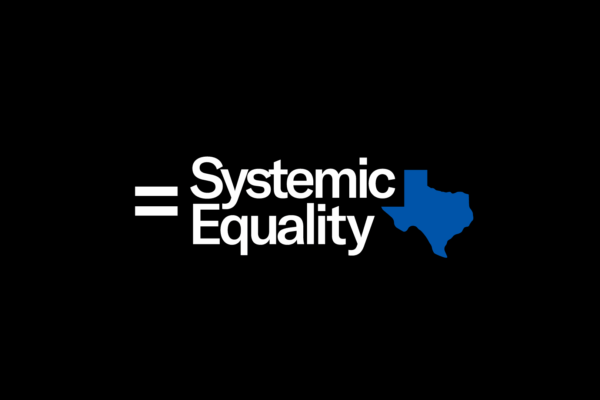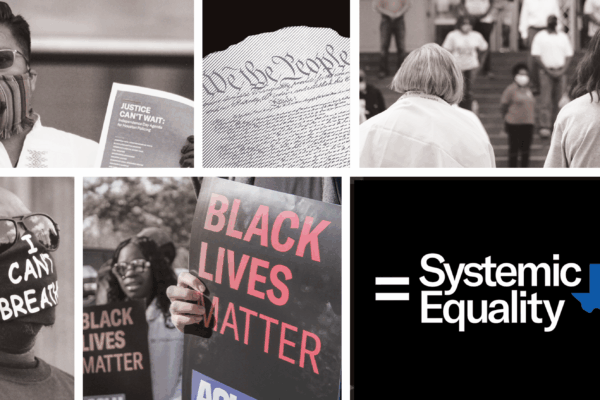HOUSTON — The ACLU of Texas today launched its Systemic Equality agenda in Texas, a multi-year racial justice agenda that will serve as the organization’s advocacy roadmap to help dismantle laws and practices that exclude and harm Black people and other communities of color.
Harnessing the national conversation on race following the murder of George Floyd and renewed attention on inequities exposed by the pandemic, the ACLU of Texas’ Systemic Equality agenda amplifies and redoubles the organization’s efforts to advance racial justice. The ACLU of Texas’ current work already is advancing the priorities in the agenda, including pushing for police reform in Dallas and Houston through two major policing reports and supporting the George Floyd Act at the 87th Texas Legislature. Other efforts will focus on examining patterns of inequity in recovery following the devastating winter blackout of 2021 and pushing for storm financial relief, especially in under-resourced communities, through the POWER Act (Providing Ongoing Water and Energy Resources to Texas Consumers Act).
“Our state has a long history of institutional racism and discrimination woven into our legal and policy systems,” said Rebecca Robertson, interim executive director of the ACLU of Texas. “Our goal is to help build a Texas where every person can achieve their highest potential, unhampered by structural and institutional racism.”
The ACLU of Texas agenda includes specific policy and legal priorities to achieve systemic equality, focusing on:
- Promoting reconciliation to reduce historical impacts of systemic inequality, such as reforming policing and reducing mass incarceration;
- Extending empowerment through efforts such as protecting voting rights; and,
- Closing racial gaps in access to necessary services such as abortion care or disaster recovery.
The Systemic Equality agenda in Texas aligns with the national ACLU Systemic Equality initiative launched during Black History Month in February. The ACLU has been working toward racial justice almost since its inception, highlighting in a 1931 pamphlet the ways in which Black people had their rights and humanity denied through residential segregation, education inequity and disenfranchisement. The Texas agenda promoting reconciliation, extending empowerment, and increasing access in the racial justice space is principally inspired by and grounded in a commitment to improve the experiences of Black people and other communities of color.
Stay Informed
Sign up to be the first to hear about how to take action.
By completing this form, I agree to receive occasional emails per the terms of the ACLU’s privacy statement.
By completing this form, I agree to receive occasional emails per the terms of the ACLU’s privacy statement.


